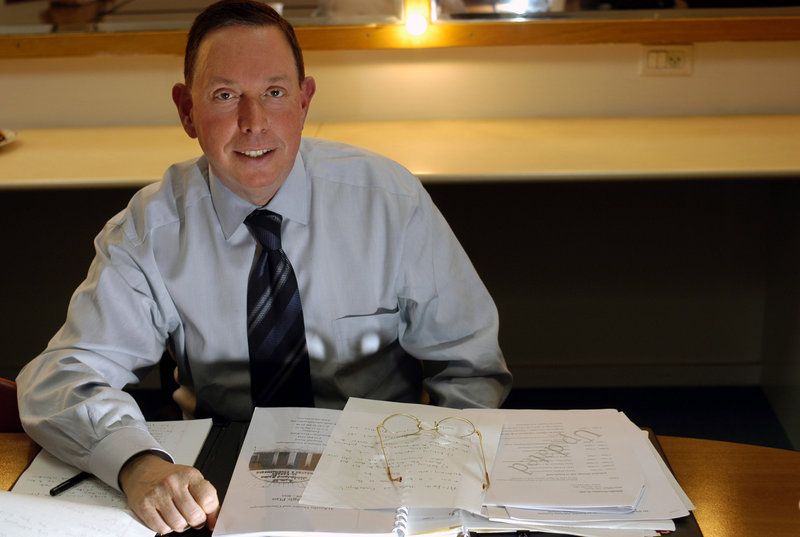Michael Kaiser, president of the Kennedy Center for the Performing Arts, will bring a mixed message of hope and alarm to Maine on Thursday as he attends a mini arts summit at the Portland Museum of Art.
Organized and hosted by the Maine Arts Commission, Arts in Crisis: A Kennedy Center Initiative is part of Kaiser’s national arts tour. He is traveling the country to counsel and encourage arts organizations during challenging times.
“So far, I’ve done 59 cities. I’ve got 10 more to do, and two before I get to Maine. So Portland will be my 62nd city,” Kaiser said in a phone interview, citing the litany of life over the past year or so.
“The first thing I have to say is that the arts are still alive and kicking in the United States. Last year in January, Americans for the Arts had suggested that one-tenth of arts organizations would go bankrupt in this recession. It’s been nowhere near that. Arts organizations are stretched, but they are resilient.”
Kaiser will talk about a number of issues facing arts groups, including fundraising, board building, budgeting and marketing — and especially effective social marketing. The program will begin with a 45-minute interview of Kaiser by Donna McNeil, director of the Maine Arts Commission. That session will be followed by a Q&A.
The symposium is free, but advance registration is required. It will be in the museum auditorium, which seats about 200 people.
Kaiser has several messages for arts groups:
n During difficult times, arts groups often react by cutting programming to save money and shelter themselves from risk. Kaiser said that approach invites failure. “To me, that’s often very dangerous, particularly in a recession,” he said. “When there is less money to be given to art, donors are making decisions more carefully. Organizations that are less appealing do not compete well.”
n Tensions between an arts group’s staff and board are commonplace, but they are particularly acute during recession.
n Arts groups that feel insecure often plan their programming less far in advance. That usually means the programming is less appealing than it could be, because less attention is paid to detail, Kaiser said. “When you plan far in advance,” he said, “it gives you the chance to do big and exciting projects that change how you are viewed. When organizations cut back on planning, they are making it harder to do projects that excite the community.”
n Art administrators are under-trained. “We spend billions of dollars training flute players, actors and dancers, but almost nothing to train the people who employ them,” Kaiser said.
n He tells arts groups of all sizes to do everything they can to build the ranks of individual donors. Small groups have under-focused on individuals, and many tend to rely on government money and grants. That leaves them chasing paperwork and tailoring programming to satisfy grantors. “My belief is, and I have been consistent in my career, I love government funding and try to get as much as I can, but I do not count on it,” he said. “Organizations that end up counting on it or whining about it do not end up very successful. Saying the government should give us money is not a potent argument. It falls on deaf ears and is not a path for success.”
Kaiser has been president of the Kennedy Center since
January 2001.
Staff Writer Bob Keyes can be contacted at 791-6457 or at:
bkeyes@pressherald.com
Send questions/comments to the editors.



